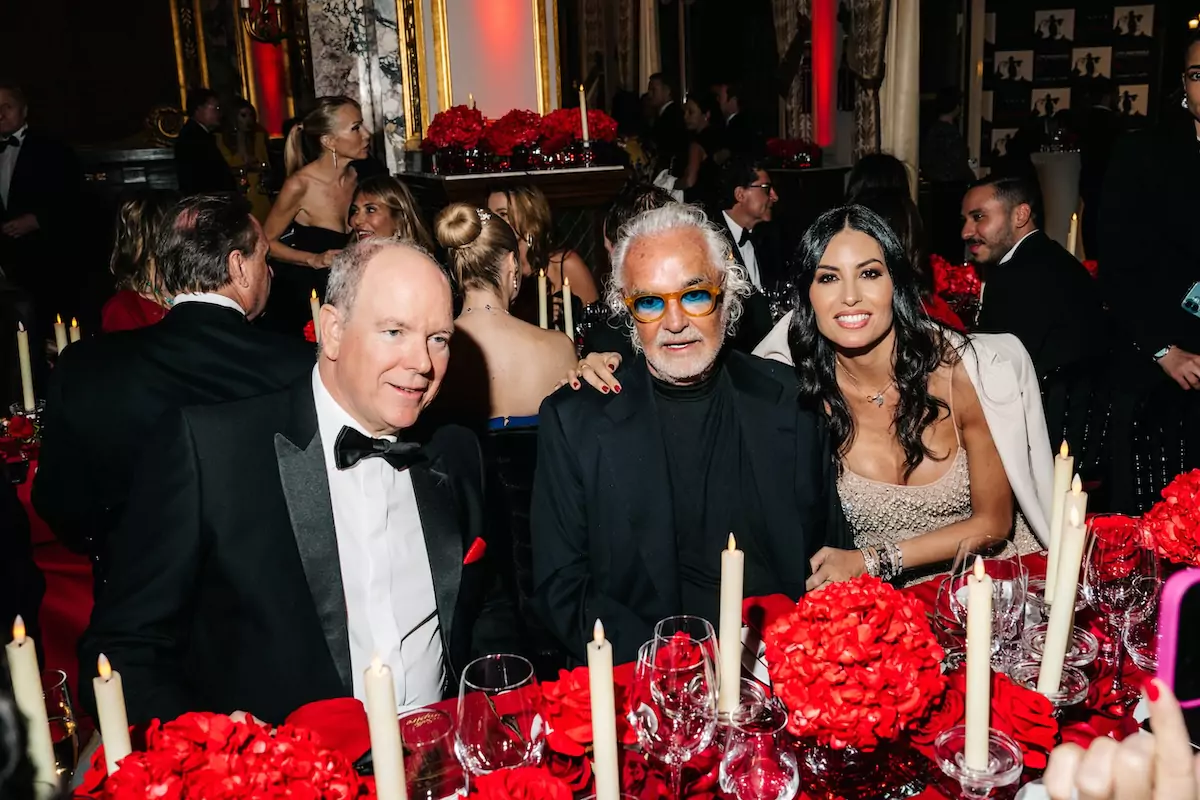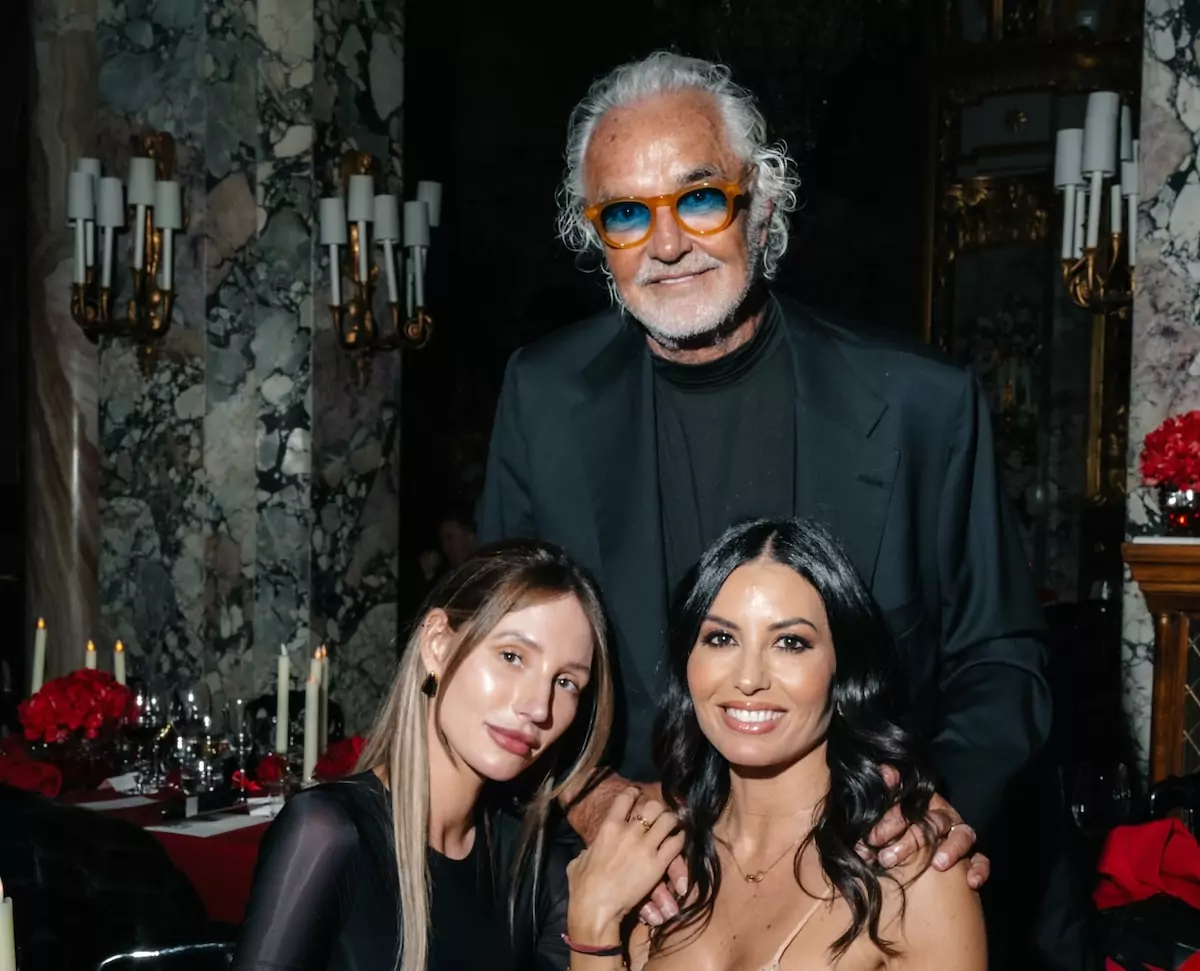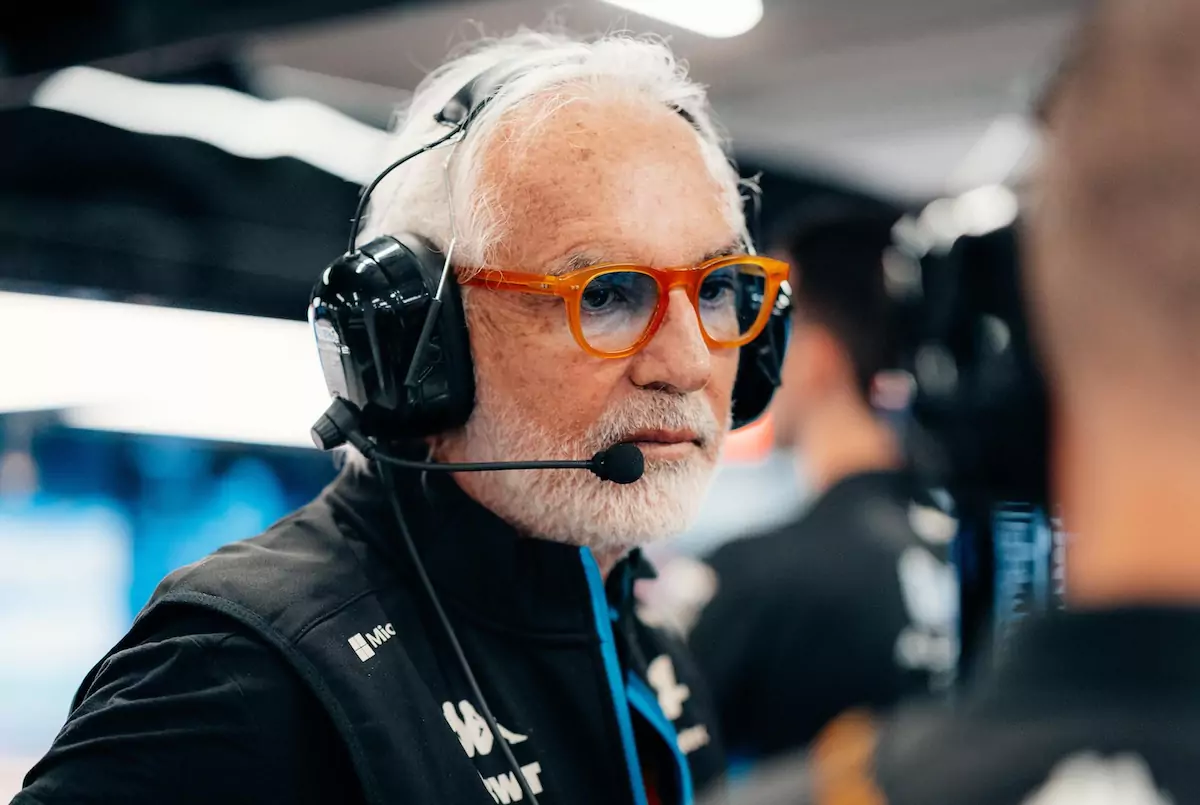On Friday 4th April, the Monaco Ambassadors Club awarded Flavio Briatore the title of Goodwill Ambassador for 2025, celebrating his influence in elevating the Principality’s profile worldwide. The recognition is the latest in a long line of achievements for the Italian entrepreneur, who has built a career that bridges the worlds of Formula One, luxury hospitality and international business.
“It’s truly an honour,” Flavio Briatore said in an exclusive interview with Monaco Life’s Cassandra Tanti. “I’ve been living in Monaco for 15 years now, and I can honestly say it feels like home. While I spend a lot of time abroad on business, my son goes to school here and many of my businesses are based in the Principality.”
With its world-class culinary scene, international connectivity and year-round sunshine, Monaco continues to offer what Briatore calls “an exceptional quality of life”, making it the ideal base for his personal and professional life. As he puts it simply: “It is a paradise.”

Hospitality as a lifestyle
After securing seven Formula One world championships with Benetton and Renault, managing drivers such as Michael Schumacher and Fernando Alonso, Briatore shifted gears in the mid-2000s to focuss on the lifestyle and hospitality sector.
“When I stepped away from Formula One 15 years ago, I found myself drawn to hospitality – it’s something that had always interested me,” he said. “It’s a complex industry, but also incredibly exciting. You meet fascinating people, it becomes a lifestyle, and above all, it’s fun.”
Briatore was one of the first to identify Monaco as a gap in the luxury dining market. He brought global brands such as Cipriani to the Principality when international brand names were still a rarity. From there, he built his Majestas Group into a formidable hospitality empire, launching venues like Twiga, Billionaire, the two Cova cafés and Crazy Pizza.
Majestas Group now employs around 900 people across the globe, and Briatore says that sense of responsibility is one of his proudest accomplishments.
“In this industry, the staff aren’t just employees – they’re partners,” he said on his secret to success. “The people working in our restaurants are part of the identity of each place. Choosing the right team, supporting them and maintaining high standards – especially in food quality and service – are essential.”
From village roots to global reach
Born in the small northern Italian village of Verzuolo, Briatore is keenly aware of the extraordinary path that led him to global recognition.
“People often say my journey isn’t typical – but that’s part of what makes it meaningful,” he said. “I come from a small village, and now I have the opportunity to create jobs around the world. That’s a great feeling.”
Following the sale of the Twiga brand to fellow Italian businessman Leonardo Maria Del Vecchio, Briatore has sharpened his focus on scaling Crazy Pizza, the fastest-growing brand in his portfolio.
“We already have around 30 Crazy Pizza locations worldwide, and our goal is to grow that to 40 or even 50,” he said. “We just opened our first Crazy Pizza in New York, and it’s been phenomenal – there’s a queue outside every single day. The brand has huge potential, and we’re continuing to invest, particularly in the U.S. and Dubai.”
A commanding return to Formula One
While Briatore has found enduring success in hospitality, the call of the Formula One paddock proved impossible to ignore. In 2022, he returned to the sport as an F1 ambassador and, in 2024, assumed leadership of the Alpine team.
“I report to Renault’s CEO Luca de Meo, who put me in charge. That was the only role I was willing to accept,” he said. “If I was going to return to Formula One, it had to be in a leadership position – there was no other option for me.”
He has since implemented a new management structure at Alpine and outlined a clear ambition: to make the team championship contenders again by 2027.
“We’re bringing in people who are passionate about Formula One and committed to building a winning team,” he said. “2026 will be the first year you’ll really start to see the results of our efforts, particularly as we’ll finally have the same engine as the other teams, which is very important for us.”
The new face of F1
Briatore has watched the sport evolve in the 15 years since his previous stint on the grid—and he welcomes the transformation.
“The biggest change has been in how the sport is perceived,” he said. “15 years ago, the average Formula One fan was 50 to 55. Now it’s closer to 30 or 35, which I think is fantastic.”
He credits the sport’s growing popularity to Liberty Media’s marketing strategy and the leadership of Formula One CEO Stefano Domenicali.
“What Stefano has done in the last three or four years is amazing, and luckily for everybody, they’ve renewed his contract for another four years,” he said. “Every race is now sold out. I was in Shanghai just recently – on a Thursday – and there were already a lot of people there, which never used to be the case.”
The spectacle surrounding race weekends is something Briatore has long championed.
“When we started in F1 at Benetton, we had not only the press from the sport or F1, but also international press, lifestyle press,” he said. “We started modelling the value of F1 beyond the garage. Now, they get it.”

Staying connected with a younger audience
At 74, Briatore remains remarkably in tune with the next generation, maintaining a strong digital presence. He is surprisingly hands-on with his social media, where he connects with over 1.7 million followers on Instagram.
“I run my account myself – so yes, the photos aren’t always perfect, but they’re real,” he said. “That’s what matters. If you want to connect with younger generations, you have to be genuine. Most of my followers are between 18 and 35.”
Some of those followers may have discovered him through the hit Netflix series Drive to Survive, where he takes on something of a Godfather-like role – though Briatore hasn’t yet seen the impact for himself.
“I actually haven’t seen it yet,” he laughed. “But I promise, the next time I take a long flight, I’ll watch it. Still, it’s another great success for Formula One – bringing in new audiences and giving people a closer look at the sport.”
The Monaco Grand Prix: more than just a race
The introduction of a mandatory two-pit stop rule at this year’s Monaco Grand Prix has generated considerable interest, with hopes it will bring a new layer of strategy to the iconic race. Flavio Briatore acknowledges the intention behind the change, though he remains cautious about the overall impact.
“I don’t think it will dramatically change the race, but it does help with perception,” said Briatore. “Monaco has often been criticised for being too predictable – whoever starts at the front usually finishes there. Two pit stops could shake things up a bit.”
But for Briatore, the Monaco Grand Prix will always be about more than just racing.
“Even if the circuit in Monaco is not perhaps what people dream of, it’s the event itself,” he said. “80% of people come because they are interested in Formula One, 20% come because there is something magical happening in Monaco. The best race in the world is in Monaco. People come here to have fun.”
From shaping championship-winning teams in Formula One to building a global hospitality brand anchored in Monaco, Briatore’s influence is woven into the fabric of the Principality. Now, as its 2025 Goodwill Ambassador, he’s officially tasked with taking that influence even further—representing Monaco’s spirit of ambition, style and international reach on the world stage.
See also:
‘It’s Good to Be Flavio’: Briatore honoured as Monaco’s newest Goodwill Ambassador
Monaco Life is produced by a team of real multi-media journalists writing original content. See more in our free newsletter, follow our Podcasts on Spotify, and check us out on Facebook, Instagram, LinkedIn and Tik Tok.
